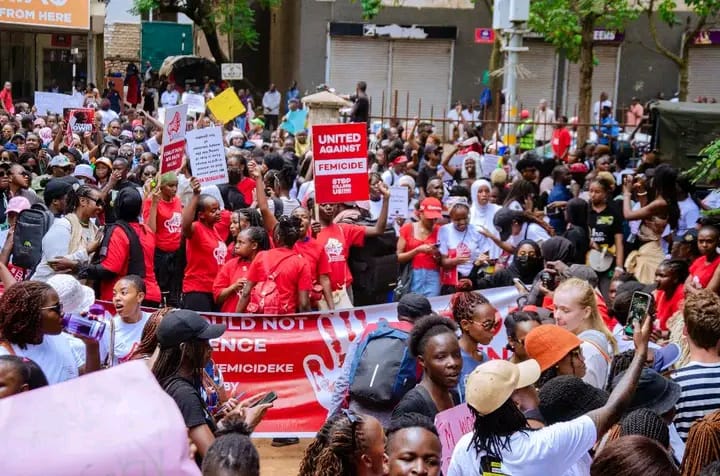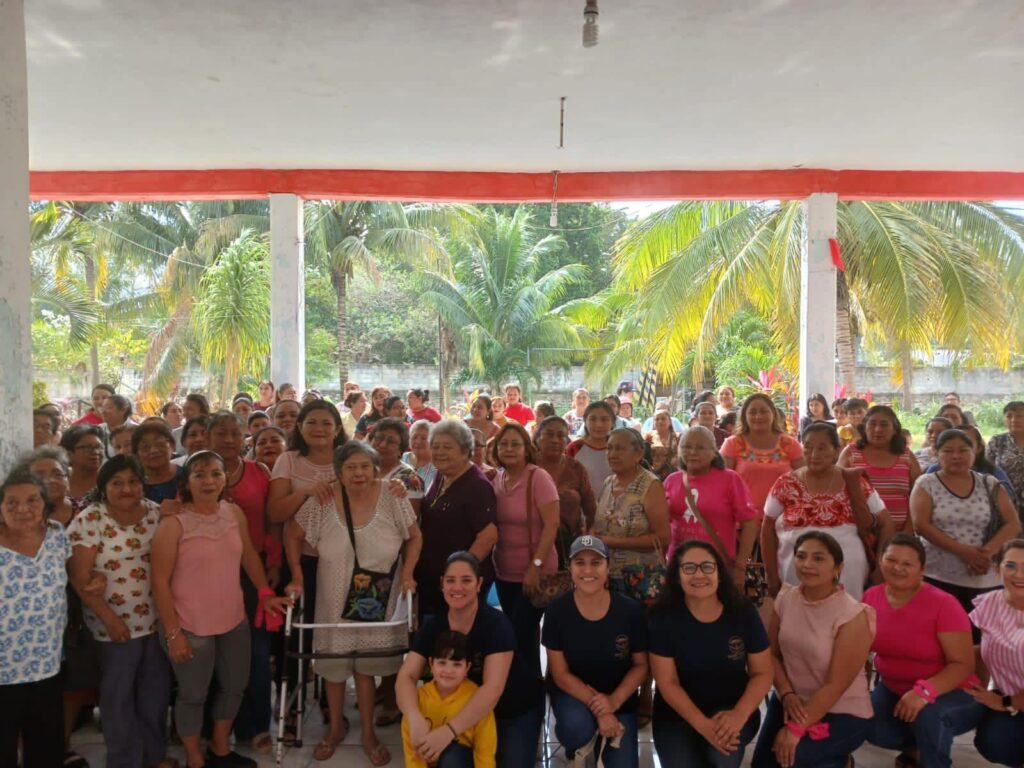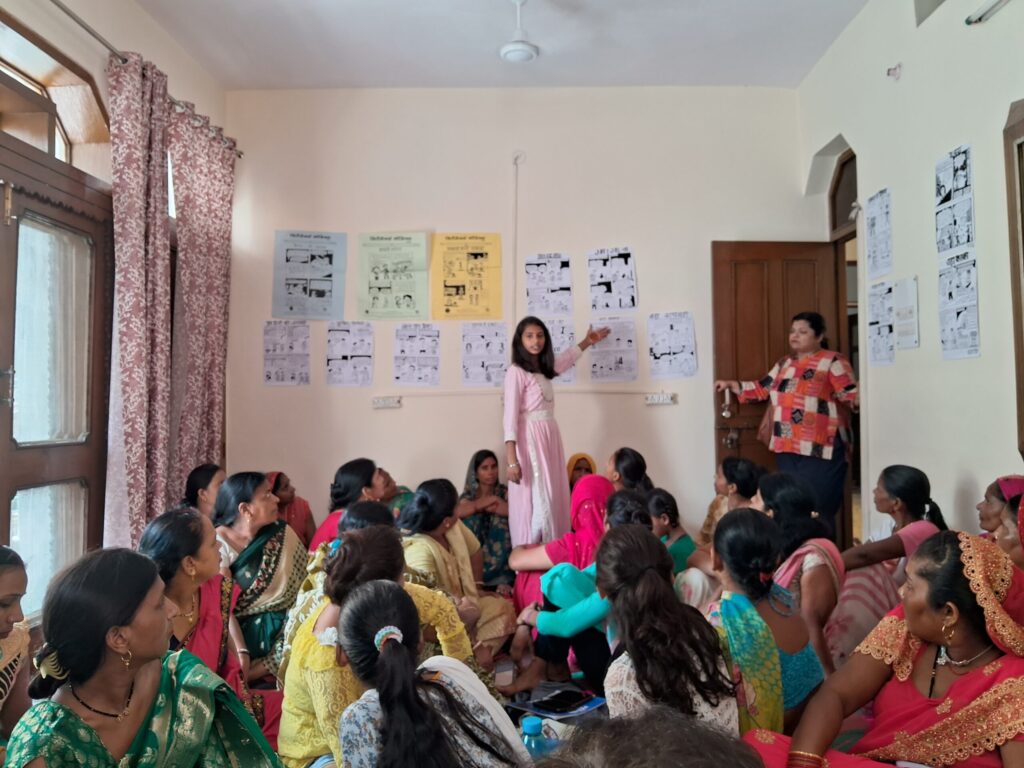Putting Women at the Center! Learning What Works: Lessons in Integrated Sustainable Development

In mid-November in Kumasi, Ghana, WomenStrong and our Consortium member Women’s Health to Wealth launched our new Strong Girls Make Strong Women Girls’ Club Handbook and trained 80 educators and youth mentors in its use. The launch and the training went well, and numerous teachers and administrators already using parts of our curriculum in their Girls’ and Boys’ Clubs testified to the valuable impacts of the program and curriculum on their girls.
They’re not only staying in school and graduating from junior high, said one pleased headmaster from a community where girls used to drop out routinely after primary school; they’re also performing well enough on their exams to place into Ghana’s top senior high schools. With the supportive education they’re receiving in their Girls’ Clubs, organized by the local school system in partnership with Women’s Health to Wealth (WHW) and WomenStrong, the self-esteem and confidence of these 10- to 15-year-olds seem to improve, the headmaster observed, as they formulate and strive to hold firm to their career plans. And on a day-to-day basis, their teachers and WHW attest, they’ve shown themselves better able to handle their nutrition, menstrual hygiene, their small personal savings, and their relationships with their parents and peers.
We visited five lively Girls’ and Boys’ Clubs established by WHW in public schools where, among other things, we witnessed girls drawing lifesize posters explaining reproductive anatomy and Boys’ Club teachers modeling ways a guy might approach a girl he’s interested in, as part of a lesson on respect. These Clubs and schools are located in peri-urban farming communities outside Kumasi that, hit hard in recent years by climate change, urban sprawl, and unchecked real estate development, have seen their social fabric all but unravel. But what we saw, in the course of our visits to several of these communities, was a wholehearted, integrated effort by Women’s Health to Wealth and its Founder/Director, Abenaa Akuamoa-Boateng, to reconstitute that fabric, by empowering the women and girls, and boys and men, to take charge of their lives and actively determine their families’ and communities’ future.
At several schools where we had the joy of visiting Girls’ and Boys’ Clubs, women participating in WHW programs stopped by to meet with us. We learned how WHW’s Mobile Women’s Health Clinics program had dramatically improved their health, with correct diagnoses and medications for conditions never before treated, as well as vital information on family health, hygiene, and nutrition. The women’s health screenings prequalified them to enter a financial literacy program and revolving loan fund that now enables them to pay their children’s school costs, feed their families more amply and nutritiously, and to open, grow, or diversify their own small businesses.
We also met with three of the area’s traditional Ashanti chiefs, who testified to the girls in their community remaining in school, the women being healthier and earning more, and, as Chief Nana Opoku Frefre put it, to WHW’s interventions “creating respect and harmony at the family level.” And we met with three dynamite women leaders who have been through WHW’s screenings and trainings and who have taken it upon themselves, after extensive community discussion, to reach out to the pregnant girls and teen moms in their community and help them find their way back to school. These kindly, grandmotherly women have done so by offering, as needed, to mind their infants while the girls are in class, help the girls reconcile with their parents, and hold the babies’ deadbeat dads to account. The women have developed a consistent methodology that has proven highly effective thus far: according to WHW, 111 pregnant teens and teen moms in the community have thus far returned to school.
We met one of these girls, a lovely young woman of 14 whom I shall call Comfort. Comfort is now pregnant with twins, having been raped by a lorry driver. Her mother – we’ll call her Elizabeth — is a stunning and vibrant market woman in her 40s who sells eggs at the lorry park, where Comfort had been helping out the day of the rape. Elizabeth already has three sets of twins and three other children whose food and school fees she can barely afford; the day we met her, she expressed concern at having yet another pair of twins to care for. The women leaders, though, told Elizabeth that they had persuaded the lorry driver to commit to paying 10 Ghana cedis (just under $2) per day, to help Comfort meet her needs now and once the twins are born, and the sheriff had committed to arresting the offender, should he not keep his word. Elizabeth seemed relieved and grateful to the women, for their effort and for the outcome. One of the women then turned to Comfort and gently asked whether she had made it to her prenatal visit this month; Comfort said shyly that she had not, whereupon HW Director Akuamoa-Boateng gave Elizabeth enough money for Comfort’s transport to the clinic the next day. Sure enough, Elizabeth called Akuamoa-Boateng the following day, to let her know that Comfort had indeed gotten to the clinic for her pre-natal visit and that all had gone well.
This is precisely the kind of reweaving of the fabric of community to which Women’s Health to Wealth has committed itself. As the chiefs, teachers, and so many women attested in all these communities, something substantial has changed there. Thanks to the interventions of WHW, and the organization’s faith in the power of individuals to speak and do for themselves, the women, girls, boys, and men have begun to stand up and lead.
In recent years, with their viability and identity as farmers upended, many community members have scrambled to carve out livings as itinerant traders and vendors, with some in both generations succumbing to alcoholism, drug addiction and trading, and prostitution. Now, despite all they must do just to survive day-to-day, they have begun to recognize that they are also mothers, daughters, sons, and fathers, with a stake in the place they call home and with the power to help make it a thriving, sustainable, forward-looking community.
This work is slow and can seem invisible, until its results are indisputable. The transformation happening with these women and girls, and the community-wide recognition of this transformation, are not only indisputable, they are irreversible. The process has been propelled by strong women and men who harbor a vision for their community and the love it takes to see through the toughest challenges. It’s called sustainable development, it happens by putting women at the center, and it’s happening here.
Now how can we bottle it, share what works, and use that knowledge to change our world?




